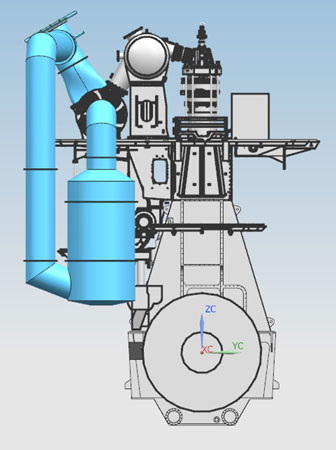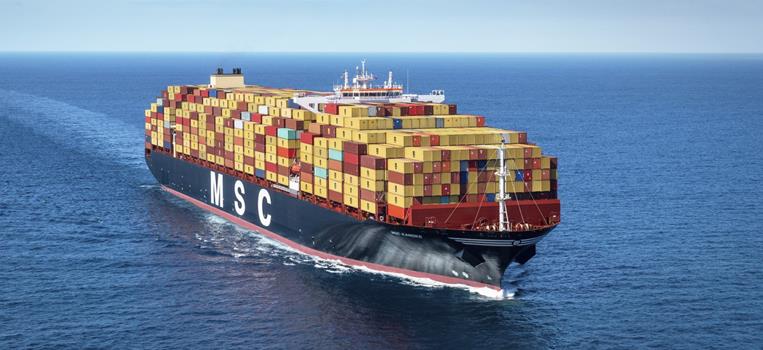WinGD drives sustainable dual-fuel engine performance with X-DF2.0 technology
Jun 16, 2020
WinGD has unveiled a new technology designed to slash methane emissions and cut fuel consumption in its X-DF dual-fuel engines. The launch of Intelligent Control by Exhaust Recycling (iCER) is the first development to be introduced as part of X-DF2.0, WinGD’s second-generation dual-fuel engine platform.<
As shipowners factor greenhouse gas reduction targets into their upcoming newbuild projects, X-DF2.0 technologies will enable improved engine performance with both LNG and future carbon-neutral fuels. The iCER system delivers enhanced combustion control through the use of inert gas. The result is a reduction in methane slip emissions of up to 50% when using LNG and a significant reduction of fuel consumption, of 3% in gas mode and 5% in diesel mode.

By advancing the performance of dual-fuel engines, X-DF2.0 will help shipowners prepare for shipping’s transition to carbon-neutral fuels. Building on the successful X-DF platform, the next-generation technologies minimise methane slip in expectation that these emissions will be regulated by IMO to help meet its 2050 greenhouse gas targets. Improved fuel efficiency will also be a key factor in reducing emissions further during the first phase of the transition.
“By adjusting the recirculation rate of inert gas and controlling parameters like fuel admission and ignition timing, we can increase compression ratios for greater efficiency,” said Volkmar Galke, WinGD Global Director of Sales. “The result is optimized combustion through closed-loop control regardless of ambient conditions and load.”

Like all future X-DF2.0 technologies, iCER will be available for all new X-DF engines. It is currently completing trials at one of WinGD’s dedicated test engine facilities – the final step in a two-year testing programme. The company is also finalising plans for a pilot installation.
As well as using fossil LNG, X-DF engines can also burn carbon-neutral synthetic or bio-derived LNG when it becomes available. By continuing to develop combustion control and engine efficiency, WinGD is improving the performance of its engines using these fuels and minimising fuel cost for ship owners and operators.
Galke explained: “Our highly efficient and reliable X-DF engines are already widely used, with more than 500,000 hours operating experience and market leadership in many key vessel segments. Our next-generation X-DF2.0 technologies will prepare our engines for even better performance, both with LNG and with the future fuels to come.”
Similar Stories
AGLPA Issue Update - Nov 2024
Today the Maritime Administration (MARAD) awarded nearly $580 million to 31 recipient ports in 15 states and territories. These grants are from the agency's Port Infrastructure Development Program (PIDP). Five…
View Article
Viking Line named Finnish security organization of the Year
View Article
Ocean Network Express and Seaspan Corporation jointly announce the establishment of ONESEA Solutions
View Article
MSC Customer Advisory
View Article
ZIM launches its USA Employer Brand Campaign to attract top talent
View Article
Hapag-Lloyd achieves good result in first three quarters of 2024
View ArticleGet the most up-to-date trending news!
SubscribeIndustry updates and weekly newsletter direct to your inbox!





